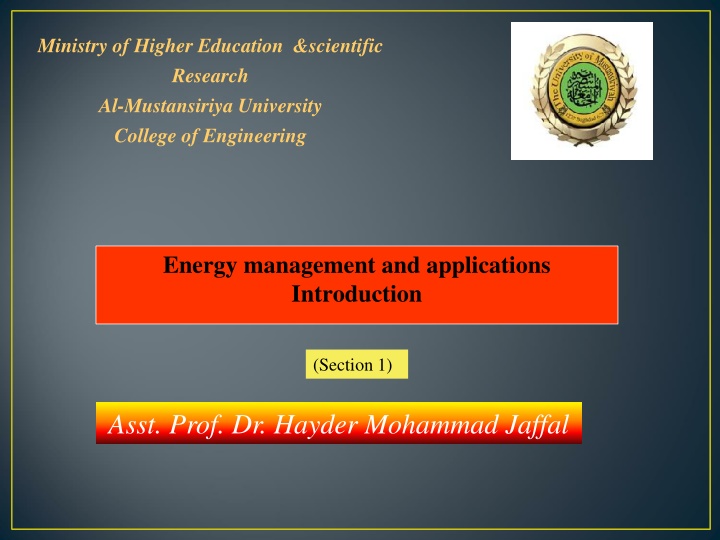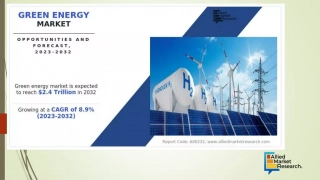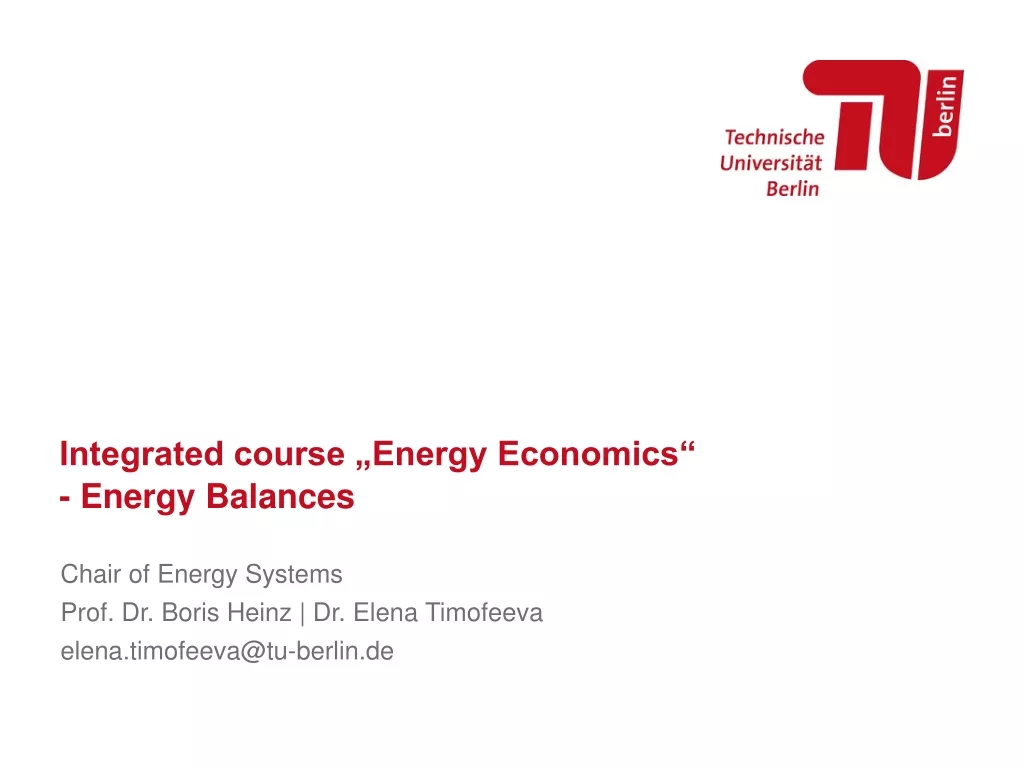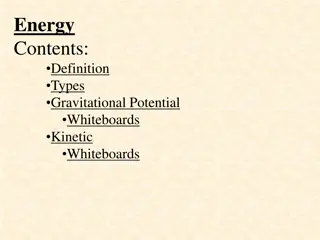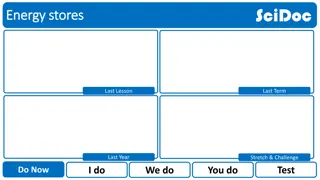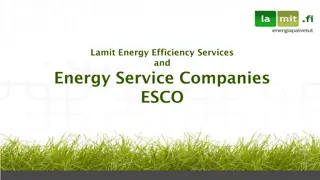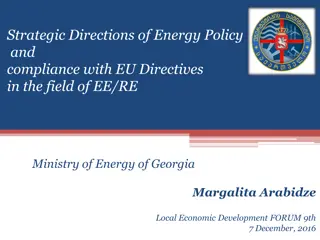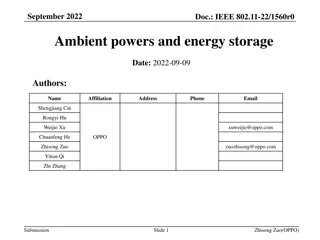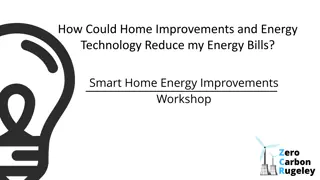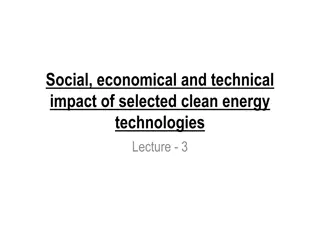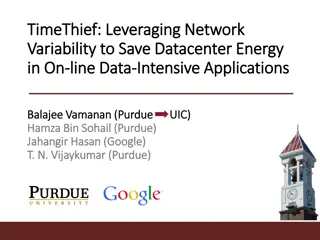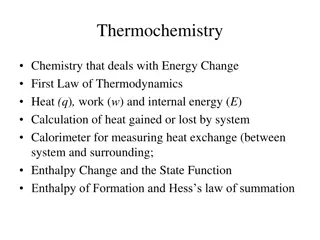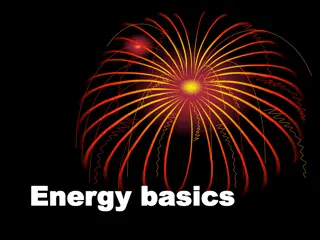Energy Management and Applications Overview
Energy management encompasses the judicious use of energy to maximize profits and minimize costs. Practices include waste elimination, efficiency maximization, and optimal energy procurement. Sub-objectives focus on conservation, communication, monitoring strategies, research, and employee engagement. Motivational forces for energy management in industries include competitiveness and power supply challenges.
Uploaded on Mar 11, 2025 | 0 Views
Download Presentation

Please find below an Image/Link to download the presentation.
The content on the website is provided AS IS for your information and personal use only. It may not be sold, licensed, or shared on other websites without obtaining consent from the author.If you encounter any issues during the download, it is possible that the publisher has removed the file from their server.
You are allowed to download the files provided on this website for personal or commercial use, subject to the condition that they are used lawfully. All files are the property of their respective owners.
The content on the website is provided AS IS for your information and personal use only. It may not be sold, licensed, or shared on other websites without obtaining consent from the author.
E N D
Presentation Transcript
Ministry of Higher Education &scientific Research Al-Mustansiriya University College of Engineering Energy management and applications Introduction (Section 1) Asst. Prof. Dr. Hayder Mohammad Jaffal
1- Definition of energy management Many definitions have been offered for energy management . One definition that captures the key principles is as follows: The judicious and effective use of energy to maximize profits (that is, minimize costs(and enhance competitive positions. Therefore, any management activity that affects the use of energy falls under this definition. The primary objective of energy management is to maximize profit and minimize costs by optimizing energy procurement and utilization, throughout the organization to minimize energy costs without affecting production and quality and to minimize environmental effects.
Among the practices that arise from the above definition are the following: Eliminate Waste: Ensure that energy is used at the highest possible efficiency. Maximize Efficiency: Utilize the most appropriate technology to meet organizational needs. Optimize Supply: Purchase or supply energy at the lowest possible cost. Energy management practices may vary from simple maintenance and operational activities that ensure equipment and systems use energy efficiently and effectively, to capital intensive installation of new, more efficient technology.
Some desirable sub-objectives of energy management programs include: 1- Conserving energy, thereby reducing cost. 2- Cultivating good communications on energy matters. 3- Developing and maintaining effective monitoring, reporting, and management strategies for efficient energy usage. 4- Finding new and better ways to increase returns from energy investments through research and development. 5- Developing interest in and dedication to energy management program from all employees.
2- Motivation to energy management There are many motivational forces for energy management presently acting on the industrial sector. They are: a. Competitiveness: Although energy cost may constitute a relatively small part of total operating cost, for many industries, it is one of the most manageable resources among labor and material. Reductions in energy consumption and thereby reducing energy cost are very vital for any industry to remain competitive. b. Short Falls in power supplies: Due to limitations in power supply infrastructures, many industries face power supply problems in terms of reliability and quality of the power supply and increasing energy demand and industrialization have led to predictions of a serious supply shortfall.
c. Environmental Management Systems: In certain parts of the world, especially in Europe, ISO 14001 standard on environmental management is increasingly becoming a requirement for trade. Energy management is an important component of environmental management and waste reduction strategies, and features significantly in ISO14001. d. Global Climate Change: The global climate is changing because of human activity, and that one of the major causes of climate change is the emission of Greenhouse Gases (GHG), principally CO2, into the atmosphere from the combustion of fossil fuels. Since fossil fuels, directly or indirectly, are important energy sources to industry, there is international pressure to reduce GHG emissions by reducing energy consumption.
3- Energy Management Goal Templates Some examples of energy management goals that could make sense for your situation include: Decrease energy use by X% over the next X years Reducing energy costs by $X over the next X months Increase sustainable energy sourcing by X% Reduce greenhouse gas emissions by X% over the next X quarters
